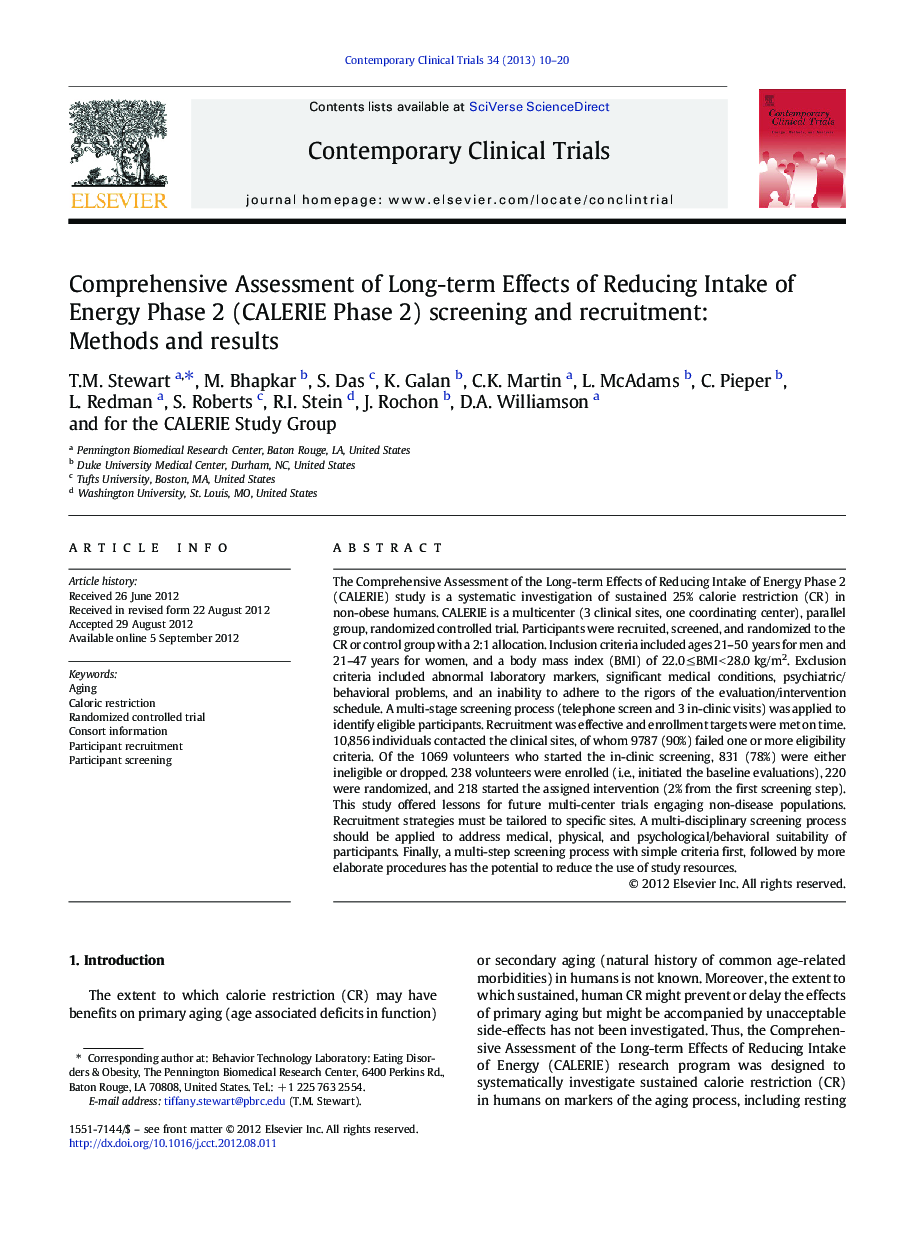| Article ID | Journal | Published Year | Pages | File Type |
|---|---|---|---|---|
| 3462698 | Contemporary Clinical Trials | 2013 | 11 Pages |
The Comprehensive Assessment of the Long-term Effects of Reducing Intake of Energy Phase 2 (CALERIE) study is a systematic investigation of sustained 25% calorie restriction (CR) in non-obese humans. CALERIE is a multicenter (3 clinical sites, one coordinating center), parallel group, randomized controlled trial. Participants were recruited, screened, and randomized to the CR or control group with a 2:1 allocation. Inclusion criteria included ages 21–50 years for men and 21–47 years for women, and a body mass index (BMI) of 22.0 ≤ BMI < 28.0 kg/m2. Exclusion criteria included abnormal laboratory markers, significant medical conditions, psychiatric/behavioral problems, and an inability to adhere to the rigors of the evaluation/intervention schedule. A multi-stage screening process (telephone screen and 3 in-clinic visits) was applied to identify eligible participants. Recruitment was effective and enrollment targets were met on time. 10,856 individuals contacted the clinical sites, of whom 9787 (90%) failed one or more eligibility criteria. Of the 1069 volunteers who started the in-clinic screening, 831 (78%) were either ineligible or dropped. 238 volunteers were enrolled (i.e., initiated the baseline evaluations), 220 were randomized, and 218 started the assigned intervention (2% from the first screening step). This study offered lessons for future multi-center trials engaging non-disease populations. Recruitment strategies must be tailored to specific sites. A multi-disciplinary screening process should be applied to address medical, physical, and psychological/behavioral suitability of participants. Finally, a multi-step screening process with simple criteria first, followed by more elaborate procedures has the potential to reduce the use of study resources.
